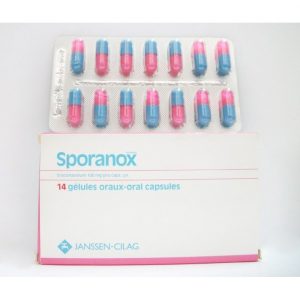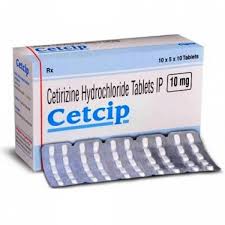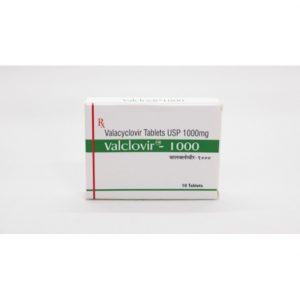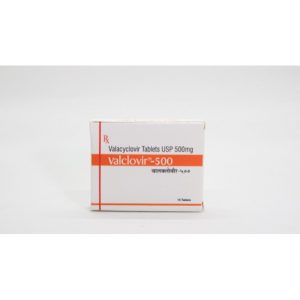Tetracycline (Resteclin) 250 Mg Capsule is a broad-spectrum polyketide antibiotic used in the treatment of many lung, skin, and sexually transmitted disease (STD) bacterial infections. It can also be used for acne care. Each capsule contains 250 mg of Tetracycline as its active ingredient.
Drug = Tetracycline
Strength = 250 mg
How to take
This medicine should be taken on an empty stomach, at least 1 hour before or 2 hours after a meal. You may take it after meals if you experience any stomach discomfort.
Take Tetracycline at regular intervals. Do not skip any doses. You must complete the entire course of this medicine. If you don’t, the infection will not be properly controlled.
Take Tetracycline exactly as directed by your doctor or according to the instructions on the label. Do not take more or less than instructed by your doctor.
Dosage of Tetracycline (Resteclin) 250mg Capsule
Adult: Susceptible infections: 250-500 mg 6 hourly. Dosage and treatment duration vary depending on the type of infection.
Acne vulgaris; Rosacea: 250-500 mg/day as a single or in divided doses for at least three months.
Brucellosis: 500 mg 4 times/day for three weeks in combination with streptomycin. Uncomplicated genital infections due to Chlamydia trachomatis; Uncomplicated gonorrhea; Nongonococcal urethritis: 500 mg 4 times/day for seven days.
Epididymo-orchitis: 500 mg 4 times/day for 10 days.
Syphilis: 500 mg 4 times/day. Duration: 15 days for early syphilis (<1 year’s duration) or 30 days for syphilis of >1 year (except neurosyphilis).
Missed Dose of Tetracycline (Resteclin) 250mg Capsule
If you often forget to take your medicine, let your doctor and pharmacist know.
Take the missed dose as soon as you remember. If it is almost time for your next dose, skip the missed dose and return to your normal dosing schedule.
Do not double a dose under any circumstances.
Overdose of Tetracycline (Resteclin) 250mg Capsule
If you think you may have used Tetracycline more than the usual dose, please seek medical help immediately.
Signs of overdose may include the following:
- Nausea
- Vomiting
- Hypersensitivity
- Crystalluria
- Hematuria
Contraindications
People with the following medical conditions should not take Tetracycline:
- Hypersensitivity to tetracyclines
- Children 8 years old and younger
- Severe renal impairment
- Pregnancy
- Lactation
- Concurrent use of methoxyflurane, retinoids or vitamin A
Side Effects
Tetracycline may have the following side effects:
- Photosensitivity
- Intracranial Hypertension
- Increased Blood Urea nitrogen
- Enamel hypoplasia or Permanent tooth discoloration in children
- Tissue hyperpigmentation in children eight years old and younger
- Agranulocytosis (rare)
- Aplastic or Hemolytic Anemia
- Eosinophilia
- Neutropenia
- Thrombocytopenia
- Esophagitis
- Esophageal ulceration
- Epigastric distress
- Glossitis
- Gastrointestinal irritations
- Dysphagia
- Nausea
- Vomiting
- Diarrhea
- Abdominal discomfort
- Pancreatitis
- Transient increases in liver function test (rare)
- Hepatitis
- Hepatic Failure
- Jaundice
- Anorexia
- Erythematous or maculopapular rash
- Pruritus
- Bullous dermatoses
- Skin discoloration
Potentially fatal:
- Anaphylaxis
- Angioedema
- Stevens-Johnson Syndrome
- Toxic Epidermal Necrolysis
- Exacerbation Of Systemic lupus erythematosus
- Clostridium Difficile-Associated Disease (CDAD)
- Hepatotoxicity
Warnings
Do not take Tetracycline with the following medicines:
- Methoxyflurane
- Isotretinoin
- Acitretin
- Tretinoin
- Amoxicillin
- Cholestyramine
- Colestipol
- Atovaquone
- Warfarin
- Lithium
- Digoxin
- Methotrexate
- Ergotamine
- Methysergide
- Sucralfate
- Kaolin-pectin
- Bismuth
- Antacids
- Multivitamins
- Calcium pills
- Iron pills
- Laxatives containing magnesium
- Birth control pills
Always notify your doctor and pharmacist if you are taking any other medicines, including herbal tonics such as traditional Chinese medicines, supplements, and medicines that you buy without a prescription.
This list does not include all medicines that may interact with Tetracycline.
How Does It Work?
Tetracycline exerts its bacteriostatic effect by passively diffusing through porin channels in the bacterial membrane and reversibly binding to the 30S ribosome subunits, thereby preventing the binding of aminoacyl transfer RNA to the messenger RNA-ribosome complex and inhibiting protein synthesis, stopping cell growth.
Uses
Tetracycline is used to treat the following conditions:
- Susceptible infections
- Rosacea
- Brucellosis
- Uncomplicated genital infections due to Chlamydia trachomatis
- Uncomplicated gonorrhea
- Nongonococcal urethritis
- Epididymal-orchitis
- Syphilis
- Minor skin infections
- Trachoma
Special Precautions and Connected Warnings
Take special precautions if you have the following conditions:
- Patient with myasthenia gravis
- Systemic lupus erythematosus
- Children
- Hepatic and mild to moderate renal impairment
- Avoid alcohol
- Avoid dairy products
Storage Conditions
- Store between 20-25°C and protected from light.
- Store in a cool, dry place away from the reach of children.
- Do not use Tetracycline that is expired or out of date.








